| |
Syrinx
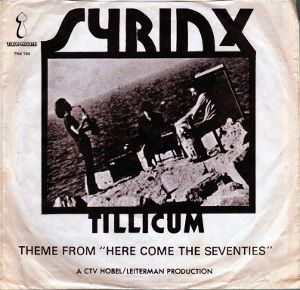
Tillicum / Melina's Torch - 7"
True North - 1971
Michael Panontin
|
Like many a teenager back in the fifties and sixties, John Mills-Cockell was hit with that proverbial epiphany, the one where you realize that music is all you want to do in life.
Except that for a pioneering experimentalist like Mills-Cockell, it was nothing so prosaic as Elvis Presley or the Beatles on the Ed Sullivan Show. His would take place at the BBC Proms at Royal Albert Hall in London, where he was living for a spell working in the music department at Harrod's. It was there that the young Canadian - he was just sixteen years old at the time - was treated to some of the weirdest sounds he had ever heard.
"When the musicians left the stage, there were two loudspeakers," he told Jesse Locke in Musicworks magazine, "[and] a guy in a lab coat came out and said they were going to play Karlheinz Stockhausen's 'Studie I'. He left the stage and nothing happened for a while. Then he came back and said, 'We didn't get the tape! We do have another piece by a Canadian composer named Hugh Le Caine - 'Dripsody'. He left the stage again and these amazing sounds emerged. I was drop-jawed!"
Fast forward nearly a decade and Mills-Cockell was completing his grad studies at the University of Toronto's Electronic Music Studio. Extracurricular work included two years with the leftfield multi-media collective Intersystems, with poet Blake Parker, light sculptor Michael Hayden and architect Dik Zander, as well as a brief stint in the local rock band Kensington Market. It was with the former group that the groundbreaking Mills-Cockell unveiled the newfangled Moog synthesizer, actually giving the world its first live taste of synthesizer music at the Art Gallery of Ontario in 1968.
But it was in 1970 that Mills-Cockell's most noteworthy musical achievement started to take shape. With the backing of Felix Pappalardi, who produced both Kensington Market albums, Mills-Cockell headed out to Vancouver for some sessions with percussionist Alan Wells. Once back in Toronto, he ran into Doug Pringle, a saxophonist who had been floating about the Toronto improv scene, most notably as a member of the Kinetic Improvisation Ensemble, and the heady music trio Syrinx was born.
Of course, by then electronic music was already starting to seep into popular culture, with records by the likes of the Silver Apples, Beaver and Krause, George Harrison and Wendy Carlos all readily available for any adventurous hippie looking to have their headspace expanded. And so it is hardly a surprise that the astral adventures on Syrinx's two LPs are light years away from the unnerving musique concrete unleashed by Intersystems several years before.
These days, Mills-Cockell has looked back on those more accessible sounds with tinges of regret. "There were things I was doing with the synthesizer in the days of Intersystems that I wish I had stuck to more," he admits. But it was probably that career change that led him to manager Bernie Finkelstein, who signed Syrinx and issued their debut
on his fledgling indie label True North.
"I decided to release an instrumental album by the electronic music trio Syrinx," Finkelstein writes in his 2012 memoir True North. "To say that they were ahead of their time is an understatement. The music was both exotic and psychedelic. This was a long way from acoustic music, but it made sense to me."
It is perhaps also safe to say that without Finkelstein's acumen, Syrinx's music might never have made its way into the ears of the executives at CTV, who as it happened commissioned an unlikely sub-two-minute ditty from the group's second LP as the theme to a futuristic series they were launching.
Finkelstein recalls, "Tucked away inside [Long Lost Relatives] was a short, bouncy, upbeat instrumental called 'Tillicum', which was the theme for the half-hour TV show Here Come the Seventies. We decided to put out the track as a single, hoping to take advantage of the national TV exposure."
CTV was actually looking for something a little more upbeat for the show. And so they coaxed a reluctant Mills-Cockell and company to rerecord 'Tillicum'. "[CTV] said it was kind of sad, because it was in a minor key, and that it could be faster," Mills-Cockell remembers. "I was grumpy, but I said, 'Yeah, I guess so.' We went into the studio at nine the next morning, drank a bottle of rose and recorded the song in two takes, as fast as we could."
Finkelstein, however, could not have been happier. "'Tillicum' started on CHED radio in Edmonton, where it hit number one. Then it spread to many parts of the country and, although it didn't go to top ten, it did hit number 38 on the single charts. Our first top-forty hit."
|
|
Suggestions
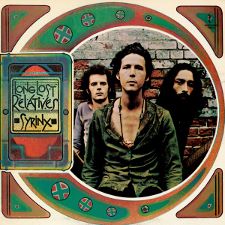
Syrinx
Long Lost Relatives
True North
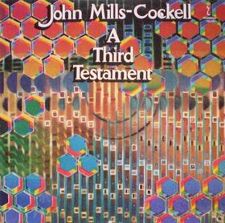
John Mills-Cockell
A Third Testament
True North
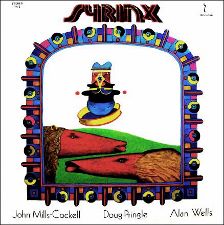
Syrinx
Syrinx
True North
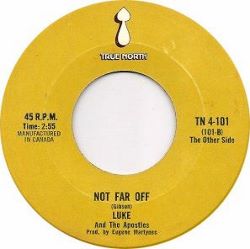
Luke and the Apostles
You Make Me High / Not Far Off - 7"
True North
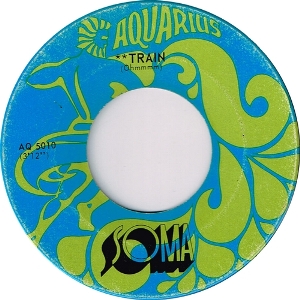
Soma
Train / Welcome Love - 7"
Aquarius
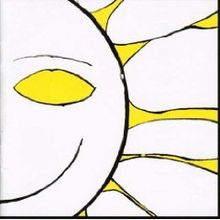
Jean-Pierre Ferland
Soleil
Barclay
|








